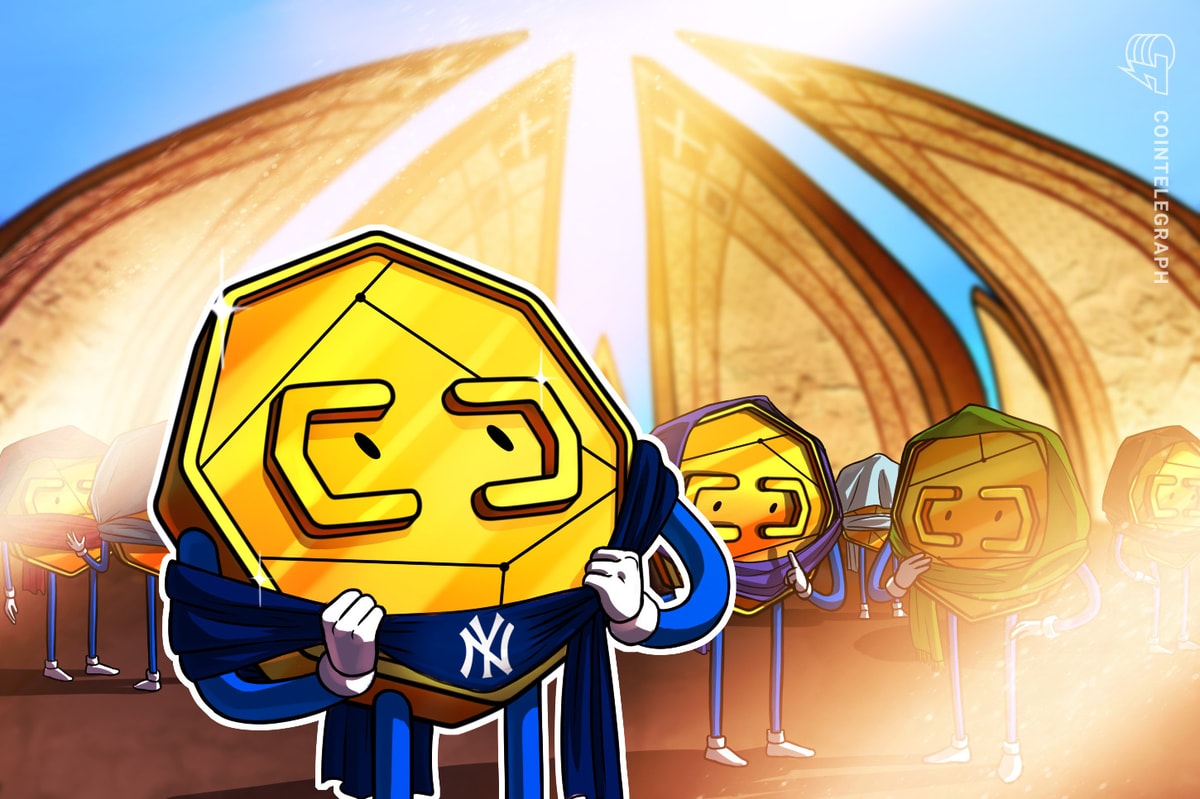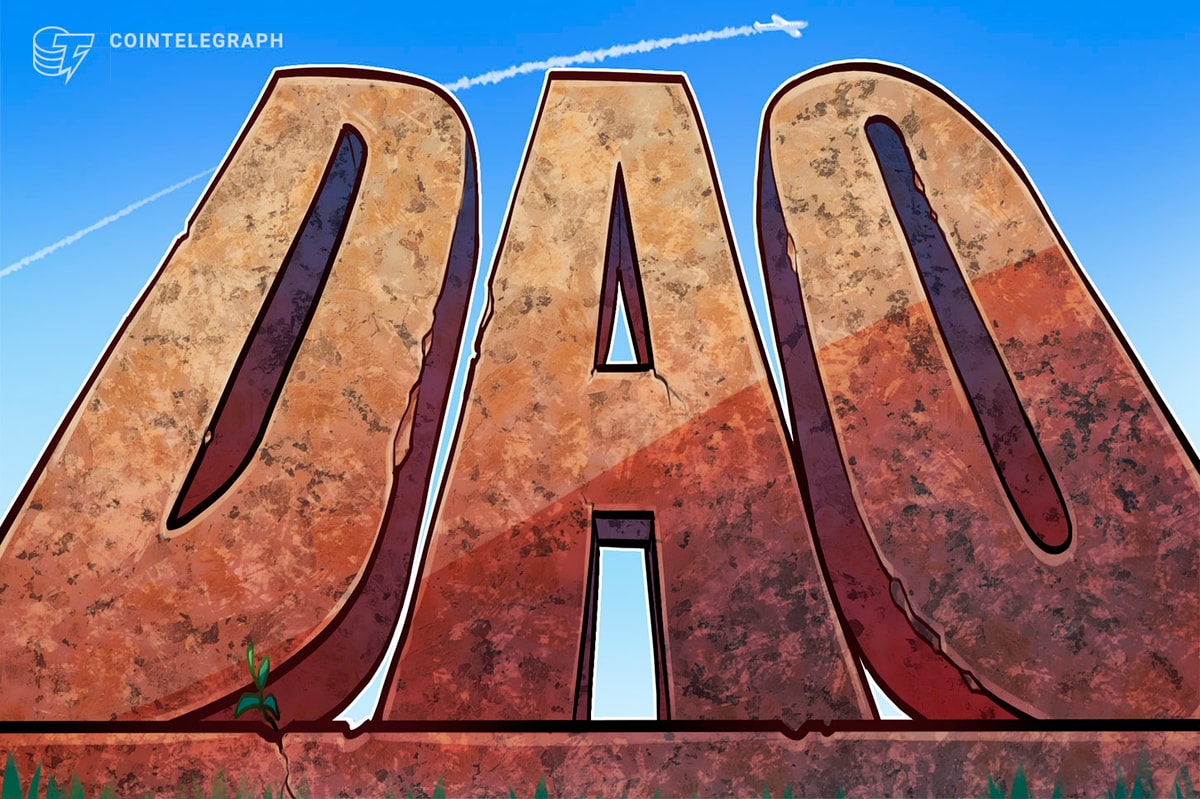
Twetch is exploring NFTs on the Bitcoin blockchain, seeking partners to replicate the Ethereum NFT blueprint and bring its vision to life.
The recent surge of interest in Ordinals NFTs on the Bitcoin blockchain has drawn the attention of developers eager to create an ecosystem for meme-themed digital art.
One such developer is Twetch, the team behind a social network on the Bitcoin SV (BSV) blockchain that operates on a “pay-to-earn” model, allowing users to monetize their content. The platform also offers a non-fungible token marketplace, a BSV wallet, and additional features like a chat function and job board.
Twetch co-founder Billy Rose expressed excitement at the prospect of joining the NFTs on Bitcoin trend.
The team, which has been working with blockchain data for the past five years, is eager to get started. The launch of the Ordinals protocol, which stores NFTs on the Bitcoin blockchain, has filled Bitcoin blocks with JPEGs, audio files, and text over the past two weeks.
New moves on BSV
While the trend has received mixed reactions from long-time Bitcoin supporters, some of whom view NFTs as a distraction from Bitcoin’s original purpose as a decentralized financial network, Twetch’s association with BSV, which markets itself as the original bitcoin and has ties to Craig Wright, the Australian computer scientist who claims to be Satoshi Nakamoto, the creator of bitcoin, could add another layer of controversy.
Even Ordinals creator Casey Rodarmor expressed reservations about Twetch’s association with BSV, but welcomed their interest in the NFT space. Rodarmor hopes Twetch will eventually build on the Bitcoin blockchain.
The ethereum community has already established a successful blueprint for a thriving NFT ecosystem, with tools such as MetaMask, Bored Apes, and OpenSea, and Twetch aims to replicate that success by adopting the same blueprint for the Bitcoin space, now that Ordinals has become a hot topic.
Twetch is currently exploring the possibility of raising capital to develop its NFT ecosystem on Bitcoin. CEO Josh Petty says that the team is looking for partners or investors who share their passion for having fun with NFTs on the Bitcoin network.
It remains to be seen whether the Ordinals trend will prove to be a fleeting trend or a more enduring development, but the Twetch team is betting on the latter.
Bitcoin-based NFTs are not new
The emergence of the Ordinals protocol has given way to a growing trend in the Bitcoin space. Data shows that the number of Ordinals inscriptions on the Bitcoin blockchain is growing steadily and at a considerable pace. According to data from Dune, roughly 3,300 transactions were carried out through the protocol.
Many in the bitcoin community have been vocal about their disapproval of Ordinals inscriptions and their impact on block size and transaction validity. Moreover, the new craze has also caused an increase in average transaction fees on the Bitcoin network.
As so, many have pointed out that the Bitcoin blockchain is not suited for NFTs.
However, it’s worth noting that Bitcoin-based NFTs are older than the Ethereum blockchain itself. Established in 2014, Counterparty was a highly popular L2 solution for digital assets built on top of the Bitcoin blockchain, offering the essential infrastructure for creating unique tokens on the Bitcoin network.
While it has been overshadowed by Ethereum and other prominent NFT chains in recent years, Counterparty still has a devoted following. It is particularly famous as the origin of notable assets such as Rare Pepes, which still command high prices in the secondary market.
Another prime example of such a historic asset is Spells of Genesis, which was launched in 2015 and was one of the first blockchain-based games that utilized NFTs.
The initial card sets for the game were produced in 2015 using the Counterparty protocol on the Bitcoin blockchain. In 2020, the game and its NFTs underwent a shift to the Ethereum blockchain, leading to a revival in popularity.
Read More: crypto.news








 Bitcoin
Bitcoin  Ethereum
Ethereum  Tether
Tether  XRP
XRP  Solana
Solana  USDC
USDC  Dogecoin
Dogecoin  TRON
TRON  Cardano
Cardano  Lido Staked Ether
Lido Staked Ether  Wrapped Bitcoin
Wrapped Bitcoin  Hyperliquid
Hyperliquid  Wrapped stETH
Wrapped stETH  Sui
Sui  Chainlink
Chainlink  LEO Token
LEO Token  Stellar
Stellar  Avalanche
Avalanche  Toncoin
Toncoin  Bitcoin Cash
Bitcoin Cash  Shiba Inu
Shiba Inu  USDS
USDS  Hedera
Hedera  WETH
WETH  Litecoin
Litecoin  Wrapped eETH
Wrapped eETH  Monero
Monero  Binance Bridged USDT (BNB Smart Chain)
Binance Bridged USDT (BNB Smart Chain)  Polkadot
Polkadot  Ethena USDe
Ethena USDe  Bitget Token
Bitget Token  Pepe
Pepe  Coinbase Wrapped BTC
Coinbase Wrapped BTC  WhiteBIT Coin
WhiteBIT Coin  Pi Network
Pi Network  Aave
Aave  Uniswap
Uniswap  Dai
Dai  Ethena Staked USDe
Ethena Staked USDe  Bittensor
Bittensor  OKB
OKB  Cronos
Cronos  BlackRock USD Institutional Digital Liquidity Fund
BlackRock USD Institutional Digital Liquidity Fund  Aptos
Aptos  NEAR Protocol
NEAR Protocol  Jito Staked SOL
Jito Staked SOL  Internet Computer
Internet Computer  Ondo
Ondo  Ethereum Classic
Ethereum Classic